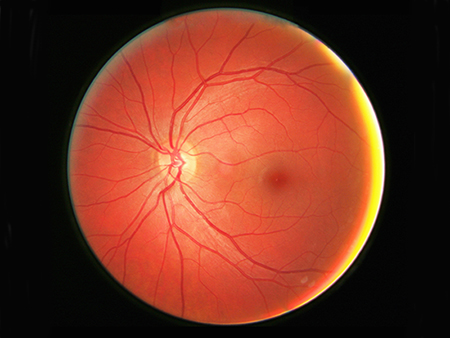Media contact: Yvonne Taunton
 Seth Hubbard, a UAB undergraduate student studying neuroscience, has received a grant to test the efficacy of carvedilol as a treatment for retinal degeneration, while participating in a summer research fellowship with Fight for Sight.Fight for Sight has awarded a grant of $2,500 to Seth Hubbard, an undergraduate student studying neuroscience and member of the Honors College at the University of Alabama at Birmingham. The grant allows Hubbard to study the potential sight-boosting effects of a drug commonly used to treat heart disease, on the retinas of mice.
Seth Hubbard, a UAB undergraduate student studying neuroscience, has received a grant to test the efficacy of carvedilol as a treatment for retinal degeneration, while participating in a summer research fellowship with Fight for Sight.Fight for Sight has awarded a grant of $2,500 to Seth Hubbard, an undergraduate student studying neuroscience and member of the Honors College at the University of Alabama at Birmingham. The grant allows Hubbard to study the potential sight-boosting effects of a drug commonly used to treat heart disease, on the retinas of mice.
Retinitis pigmentosa, an eye ailment, affects nearly 40 percent of people with inherited retinal disease, yet there are no known universal therapies for treatment. A Fight for Sight collaborator identified carvedilol, a drug commonly used for heart disease, while screening zebrafish expressing rhodopsin Q344X, a mutation found in humans that causes autosomal dominant RP. Upon treatment, it was found the mutant fish’s sensation of dim light improved, and rod cells within the retina were preserved.
His mentor of two years, Alecia Gross, Ph.D., associate professor and assistant dean of Neurobiology for the School of Medicine, says Hubbard will test the efficacy of carvedilol in rhodopsin Q344X mice by examining the carvedilol-treated retina and comparing it to untreated controls at different time points. The post-treatment analysis of these mice will reveal any potential delays in retinal degeneration.
“I am beyond grateful to have been selected for this honor, the $2,500 and the opportunity to continue my work on delaying retinal degeneration using an FDA-approved drug,” Hubbard said. “I hope my efforts will contribute to a treatment that will one day allow us to end blindness.”
Hubbard aspires to join an M.D./Ph.D. program and continue his love for vision science through specializing in ophthalmology postgraduation and performing vision research.
Fight for Sight provides crucial funding to promising scientists before they can receive grants from larger sources such as the National Eye Institute and private foundations. Since 1946, Fight for Sight has supported and inspired eye and vision research by funding promising scientists early in their careers. Fight for Sight has awarded over $20 million in grants to more than 3,000 eye researchers.